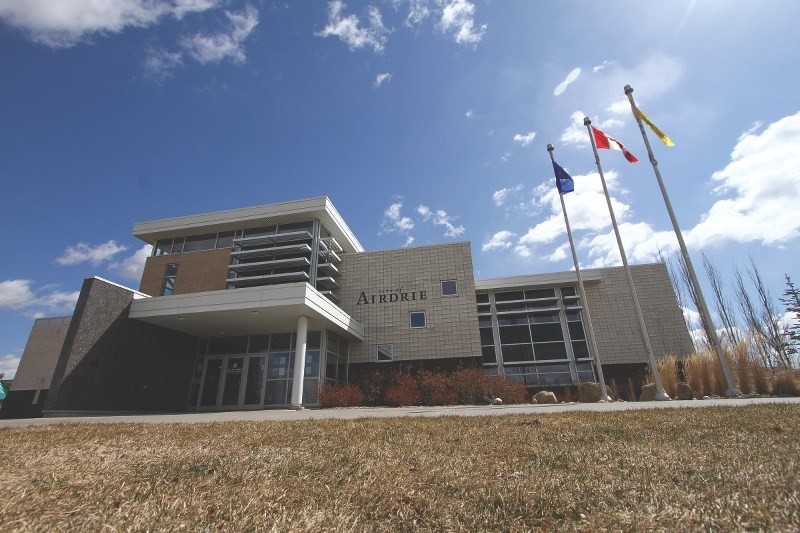Temporary changes to Airdrie's land-use bylaw that were ushered in during the onset of the COVID-19 pandemic to support local business owners will be made permanent, following a vote by City council last week.
During their regular meeting on May 2, City council voted 6-1 in favour of making permanent temporary measures that were approved in the spring of 2020, including concessions for commercial businesses to operate outdoor patios, enabling them to practice social distancing and continue serving customers amid increasing public health restrictions at the time.
Measures also included relaxed standards on public signage to help promote local businesses and enable them to send important messages to the community regarding changes to operations and services during the pandemic.
“These [temporary] measures were well received by the business community and have been monitored by administration without any impact or instance on surrounding properties and nearby residential neighbourhoods,” said William Czaban, senior planner at the City of Airdrie during the presentation.
He added the proposed bylaw changes would "entrench” these measures as permanent changes in the City’s land-use bylaw and would include updates to standards for mobile vendors, namely food truck operators.
The changes to the land-use bylaw would broaden the definition from food truck operators to mobile vendors – including non-food vendors in its definition, and permitting use in several commercial, mixed-use, and industrial districts.
Mobile vendors would still require permission from private or public property owners prior to parking their vehicle. Amendments would also provide regulations for clarity, rules on residential storage, and provisions within City-owned rights-of-ways.
Czaban said the proposed changes would help clarify expectations for business owners and help to promote economic recovery within the community following the devastation of the pandemic and the impact of public health restrictions on local businesses.
“These [changes] are intended to ensure the land-use bylaw continues to keep pace with emerging trends … and continues to support Airdrie’s businesses and the greater public good,” he said.
“These improvements to our land-use bylaw will ensure its meeting the expectations of Airdrie’s business community and is staying current on these three key and nuanced issues.”
Following the presentation, Deputy Mayor Al Jones queried whether the amendments to the bylaw would restrict mobile vendors looking to park on streets and main roadways. He cited an anecdote he experienced of a food truck parked near a local school that posed a safety hazard.
“If kids aren’t paying attention to what's around them... they see mini donuts and were going back and forth [across the road] without really paying attention, so that was my concern to having them parked on the street,” Jones said.
In response, Czaban indicated the land-use bylaw specifically deals with public property and this situation would be outside of his jurisdiction. He added the City works together with municipal enforcement to this end.
“Once it’s on the street, it’s essentially governed by the Traffic Safety Act and the other legislations and bylaws to that effect,” Czaban said. “There’s typically a very high degree of coordination between our two teams to make sure that everyone is on the same page and that we’re applying the rules as best as we can and as is most appropriate.”
Jones added he hoped to see further clarification in the bylaw to prohibit mobile vendors from parking within a certain distance of residential areas or existing restaurants and eating establishments, noting the existing 30-foot requirement is not sufficient.
“That could be directly across the street – that's not good enough. I’m sorry, but it’s not,” he said. “This was an issue in Calgary when food trucks were getting popular. I’m thinking proactively – we don’t want that to be an issue here.
“I don’t want to deter business from mobile [vendors]. I just think there’s a lot of places where they can still serve without us giving up any protection to those who have invested significantly in our community.”
Jones noted a second concern within the proposed amendments including making permanent the provisionary measures put in place during the pandemic to relax signage regulations.
“I’m not liking that portion,” Jones said, arguing that in the past, businesses were over-zealous with signage. “I believe [businesses] need some time to recover and rebuild, but I don’t want to see the city plastered in signs either.”
“Without something in place or a limitation of some sort … I wouldn’t want to return to those days where we had that kind of environment.”
Coun. Ron Chapman echoed Jones’ concern regarding a potential upsurge of public signage resulting from the proposed amendments.
“I shared a concern about the sign proliferation,” Chapman said. “I hope if we do start to see it, it’ll be something that we can come back and address.”
However, despite his concerns, Chapman felt the overall amendments would be a positive move to support the business community.
“Everything is a moving target obviously and I think they’re great amendments,” he said. “I think we have to do what we can for our local businesses.”
Czaban assured both councillors the amendments would not strip away all sign regulations.
“This is simply entrenching the relaxations that had been initiated to better assist business [including] A-frame, specialized signs, and lawn signs,” he said. “If it is something that gets stretched or abused in the future, it’s something staff continues to monitor.
“I would expect we’d be fairly responsive in bringing something back before this very council to help fine-tune and calibrate that as our context continues to change.”
Finally Mayor Peter Brown said he is not “in any way” concerned regarding the proposed bylaws and indicated they could be changed if needed in the future.
“If it becomes a problem, we can amend it,” he said. “What you’ve got here, it works, it is very credible, it is great for businesses and I’m looking forward to supporting it.”



